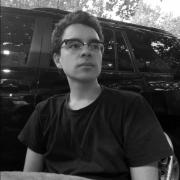Clubbed to Death
‘In a real dark night of the soul it is always three o’clock in the morning, day after day’
—F. Scott Fitzgerald [1]
As with a glimpse of a half-forgotten dream on a dewy morning, we commence with a thought that may take us by surprise: in Arthur Schopenhauer’s The World as Will and Representation, he explains that the multiplicity of things in space and time, including other people and even our own bodies, are phenomenally generated by the concepts of our minds, with no bearing on what things are actually like in themselves, independent of the representational forms we bring to them. At the same time, Schopenhauer insists that we have a mysterious inner sense of ‘will’, which is not conceptually intelligible or empirically observable, such that it transcends the forms of space and time and the categories of understanding. In Schopenhauer’s preferred Kantian parlance, the will is thus what our bodies are ‘in themselves’, the ground or noumenon beneath all representations or phenomena, that unrepresented thing behind all images and perceptions of the body. Schopenhauer further contends that, since the plurality of individuated bodies is only generated through the subjectivist forms of space and time, the will cannot be unique to each of us but must be one indivisible will uniting us all. ‘We have called time and space the principium individuationis because only through them and in them is plurality of the homogenous possible … This plurality, however, does not concern the will as thing-in-itself, but only its phenomena. The will is present, whole and undivided.’ [2] Being, as it were, is an unabashed communist.
[1] F. Scott Fitzgerald, The Crack-Up [1945], Alma Books, Richmond, UK, 2018, eBook.
[2] The principle of individuation. Arthur Schopenhauer, The World as Will and Representation [1818], vol. 2, E.F.J. Payne (trans.), Dover Publications, New York, 2016, pp. 331–32.

